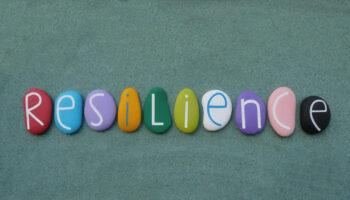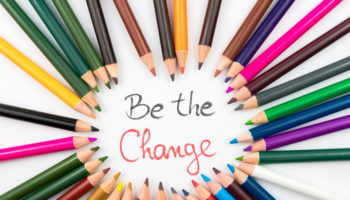Michelle Mallonee Long
I tend to be a creature of habit. I like to schedule and plan and prepare. I like to know my routine. These things keep me settled and grounded. Changes to my routine, unexpected circumstances, and new situations can rattle me. They put me on guard and raise my anxiety level. Over the years I have learned to deal with change. I have learned that not all new things are bad, and some changes are actually for the better. It is just a matter of getting through the change and adjusting to the new situation before I can actually see the benefits.
Many children struggle with change as well. A simple change in the schedule or placement of a favored toy can lead to stress and unwanted behaviors. It is our job as caregivers to support children through the necessary changes and reduce the number of unnecessary changes we place upon them.
In the article “3 Reasons Why Change Is So Difficult for Some Children and How To Help Them Through It,” Dr. Myers writes about the roles that temperament, trust and attachment issues, and behavior disorders play when change occurs and ways that parents/caregivers can support those children. In another article “The Kids Are Alright, But They Don’t Like Change: Why transitions present a challenge and learning opportunity at the same time,” Dr. Klein writes about the effects of transitions on children before the age of five. Continue reading these articles by clicking the reference article links at the end of this article.
Did you know that in many cultures the dragonfly is a symbol of change? Incorporating a lesson on dragonflies into your curriculum could be a way to introduce children to the global symbolism, as well as offer a mechanism to support them when changes occur.
For information on the meaning of the dragonfly symbol check out these links:
Why the Dragonfly?
Symbolism/Meaning of a Dragonfly
What does the Dragonfly Symbolize?
Another way to introduce the concept of accepting change is to use “The Very Hungry Caterpillar” by Eric Carle.
“We delight in the beauty of the butterfly, but rarely admit the changes it has gone through to achieve that beauty.”
– Maya Angelou
“If you don’t like something change it. If you can’t change it, change your attitude.”
– Maya Angelou
“Parents who expect change in themselves as well as in their children, who accept it and find in it the joy as well as the pains of growth, are likely to be the happiest and most confident parents.”
– Fred Rogers
Reference Articles:
Myers, R. (2014, August 19). 3 Reasons Why Change is so Difficult for Some Children and How to Help Them Through It. Child Development Institute. https://childdevelopmentinfo.com/psychology/adhd-add/3-reasons-change-difficult-children-help/#gs.c3j657
Klein, T. P. (2014, April 18). The Kids Are Alright, But They Don’t Like Change: Why transitions present a challenge and learning opportunity at the same time. Psychology Today. https://www.psychologytoday.com/us/blog/our-thriving-children/201404/the-kids-are-alright-they-don-t-change




